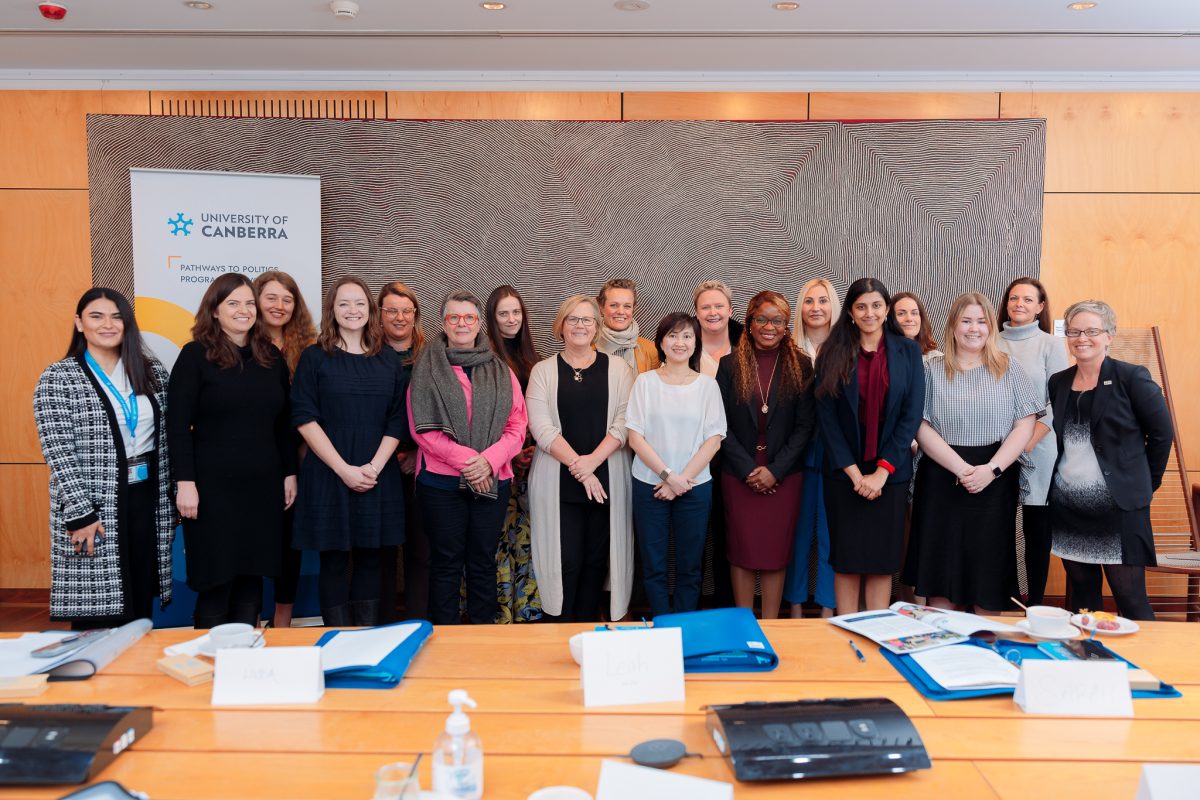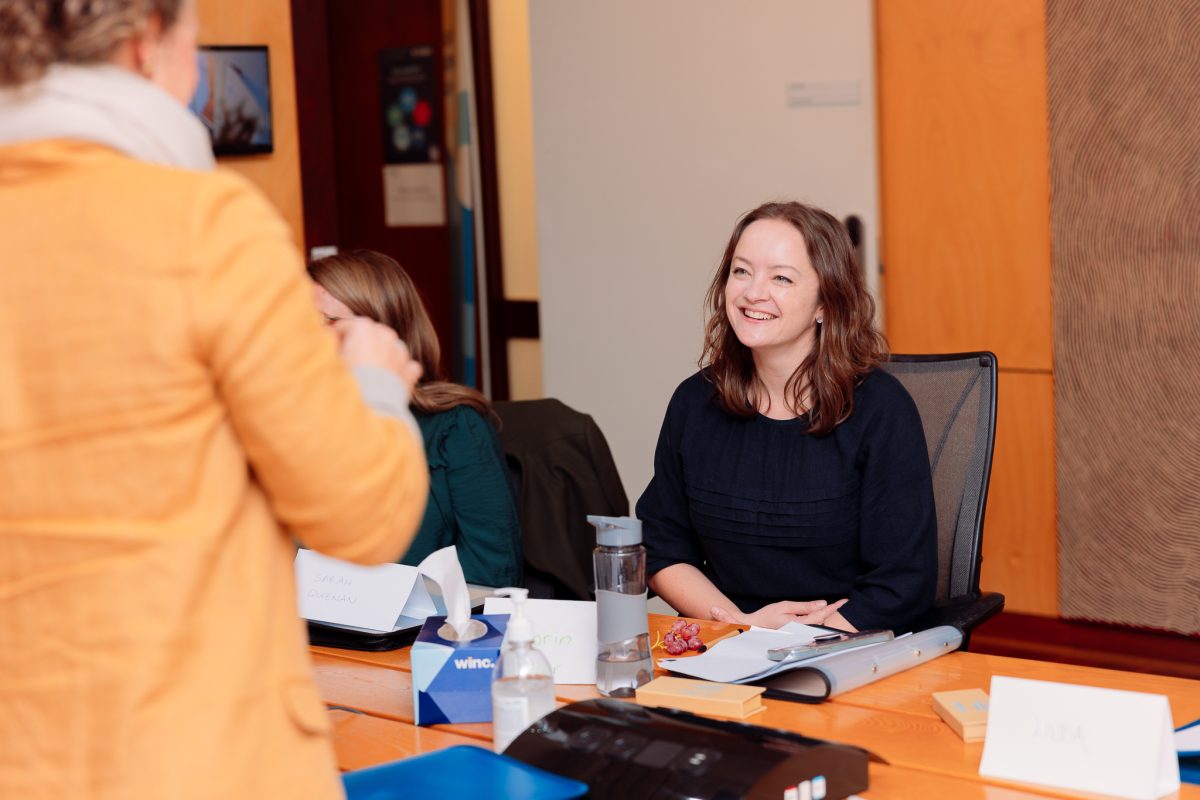
The 2023 Pathways to Politics cohort, with program director Amy Kilpatrick (far right). Photo: David Beach.
Cate Thomas has lived in the 19th century village of Gundaroo for more than a decade.
When the Veolia waste incinerator was proposed for nearby Tarago, Cate spoke out against the project alongside many others, and quickly realised her voice could be a powerful tool.
She soon led the Gundaroo Community Association, working to preserve the local environment, history and community culture.
“When I grew up in the mid 60s, women were to be seen and not heard,” Cate says.
“I never thought I’d be speaking on behalf of a whole community.
“In order to properly serve Gundaroo as the community association’s president, I needed to build a strong set of skills that really weren’t taught to girls of my generation in school.”
In order to upskill, Cate applied for the Pathways to Politics program, hosted locally by the University of Canberra (UC).
The program forms part of a national partnership between the Trawalla Foundation, Women’s Leadership Institute Australia and University of Melbourne to increase diversity in Australian politics.
“Pathways to Politics has challenged me to carefully consider topics I would have previously shied away from, learn about complex yet essential roles and build the confidence to use my voice as a driver for change,” Cate says.
“I have also connected with other women equally passionate about supporting their communities.
“This is not a journey anyone can take alone. The cross-border nature of many issues means it’s important that we talk with our peers in other towns and villages, so the networking aspect of this course has been crucial.”

Corin Miller was made aware of Pathways to Politics by her local federal member, Kristy McBain. Photo: David Beach.
Just under four hours’ drive away in the coastal town of Eden, Corin Miller works as a rural GP. Especially interested in problems surrounding rural paediatrics, she knows firsthand how difficult access to proper healthcare can be for regional parents and their kids.
“Across rural Australia, children with conditions deemed to be non-urgent, which can include mental illness, learning, behavioural and social difficulties, can often wait more than two years to be seen by a paediatrician,” Corin says.
“We got our first local paediatrician in 2019, which was fantastic for the region, but as a mum and GP it is really concerning that rural children can still wait so long to be seen. Part of the problem is that our system is so complex that care providers, whether they’re in health, social services or education, can struggle to communicate with each other effectively.
“If we can start bridging the gap and integrating care services, Australian communities will be far better off, especially in rural towns like Eden. That’s what I’m advocating for.”
Corin is currently working towards a PhD in health systems research at the University of NSW (UNSW) alongside her involvement in Pathways to Politics at UC.
She describes the course as an important step towards gender equality in the political landscape.
“I don’t necessarily want to be a politician, but I do want improved outcomes for my community,” she says.
“I’ve been blown away by this course, which has armed me with the tools to advocate more effectively and introduced me to some phenomenal women who will potentially transform the face of politics going forward.
“My grandmother got married in secret so she could continue working and my mum campaigned for equal pay for equal work. We stand on the shoulders of those before us who fought for true equality. I really see this program helping make that a reality.”
Pathways to Politics is a non-partisan initiative hosted by six universities around Australia. UC’s program is open to NSW and ACT residents and free for participants. Find out more here.
Original Article published by Morgan Kenyon on Riotact.







